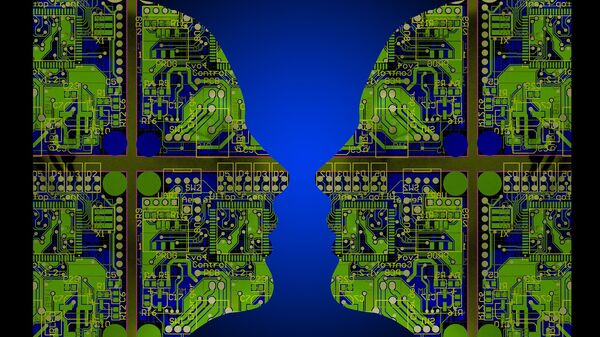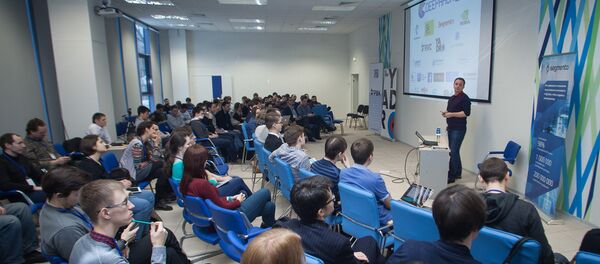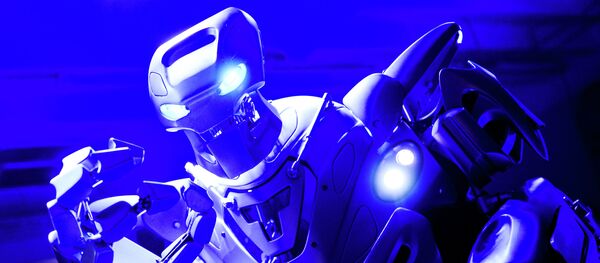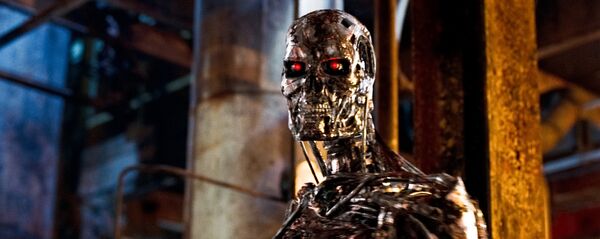Is the so-called rise of the machines real? It may seem to be so, and the paperclip maximizer thought experiment, shows that machines do not need to be perceived as evil.
Tom Mikolov, a research scientist at Facebook AI Research and former member of the Google Brain team, who developed sophisticated neural networks algorithms, sheds some light on AI and its future.
"There is this impression that there will be suddenly some super-clever AI having God-like powers and will be turning the whole world into paperclips or whatever, I don't think that this is the case, it doesn't make that much sense to me" Mikolov told Sputnik.
"It is like saying that whenever we will be able to fly to space, in two years we will be able to fly to stars — it just didn't happen and it wasn't very likely to happen too".
Mikolov is in Moscow to speak on the topic "The Roadmap Towards Machine Intelligence" at the international Hackathon DeepHack Q&A, which kicked off on January 31 at the Moscow Institute of Physics and Technology.
He noted however, that — really — anything could happen.
"It's very difficult to make predictions about intelligence, because we don't understand the concept that well, and it is not clear how far is the intelligence of humans from optimum intelligence. We are limited in many ways, but before computers get to our speed, it will take very long, because right now we do not have algorithms that will be able to represent intelligence, we do not even have the basic concepts that will be required."
Mikolov suggested that such fears might be related to pop-culture memes, creating a picture of AI as a compassionless killing machine.
"I was speaking with Asian people and they did say that the robots are not really having such a bad name there… because they did have actually some other famous movie, but there robot supposed to be the good one and basically the whole culture became influenced very much by the movies that people watch so now that the AI supposed to be evil in the Western world."
"It is definitely likely that there could be issues when it comes to AI and privacy especially if you've got sort of AI, some system that basically is… like your personal assistant in some sense," Mikolov said.
He noted, however, that this issue is more likely to be a headache for next generations: "Yes, in the long distant future, I think there will be a lot of very big problems that we will have to solve or face, but so far, technologies are so much underdeveloped, the abilities of the systems are so low that I'm not really worried about it for the next quite a few years."
As for the next generations, there are a considerable number of tasks that modern IT is struggling to solve, and developers have a picture of what a future AI may be like.
"When it comes to intelligence, I think that the future goal for computers is to extend our intelligence. If you want to extend your intelligence in the way that you will be able to solve a task you currently cannot solve," Mikolov said.
Nevertheless, there are daunting obstacles to the creation of AI, Mikolov said.
"I'm not very optimistic about the progress made there so far, not just me, but generations before me, people wanted to do this since the 50s maybe, they were super smart people who had this goal and pretty much failed. It is hard to see how far we are from there, I think that people are sometimes a bit too optimistic and they are just trying to do too many things too quickly and then they fail," he said.
"The main obstacle right now is our understanding of intelligence. Intelligence seems very natural to us, but that is quite tricky, because we as humans are able to understand a lot of things because evolution shaped us this way and computers are not shaped this way."







